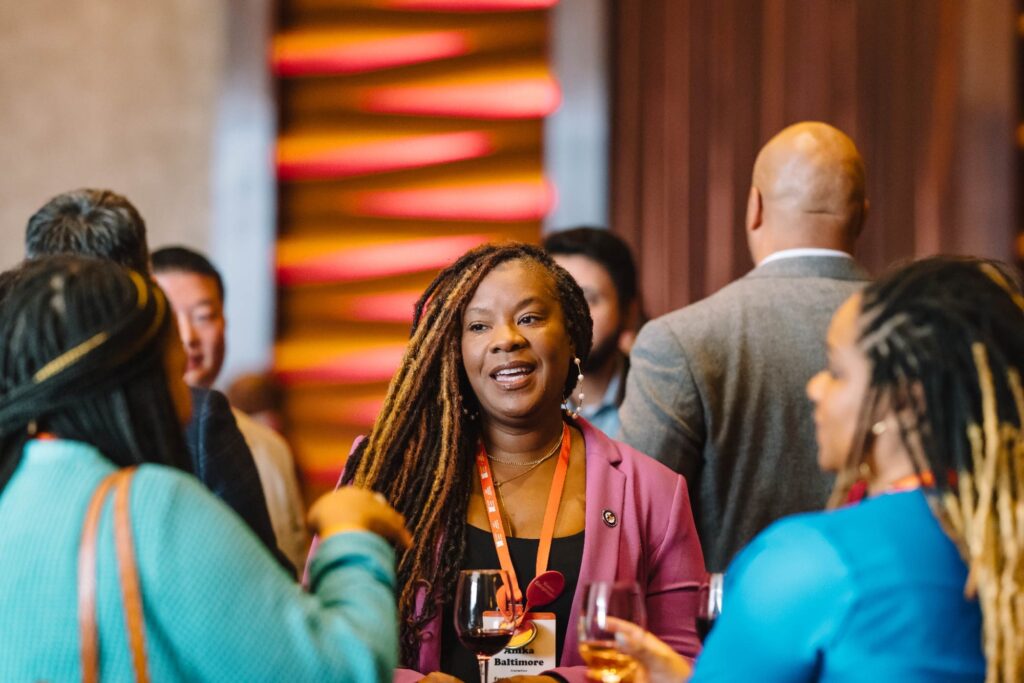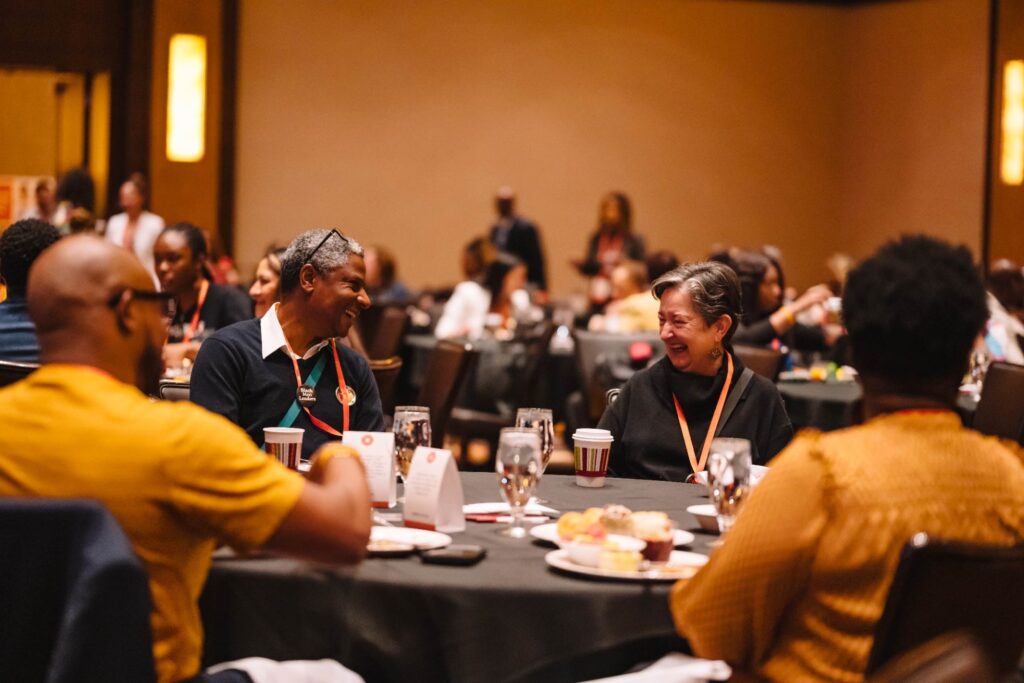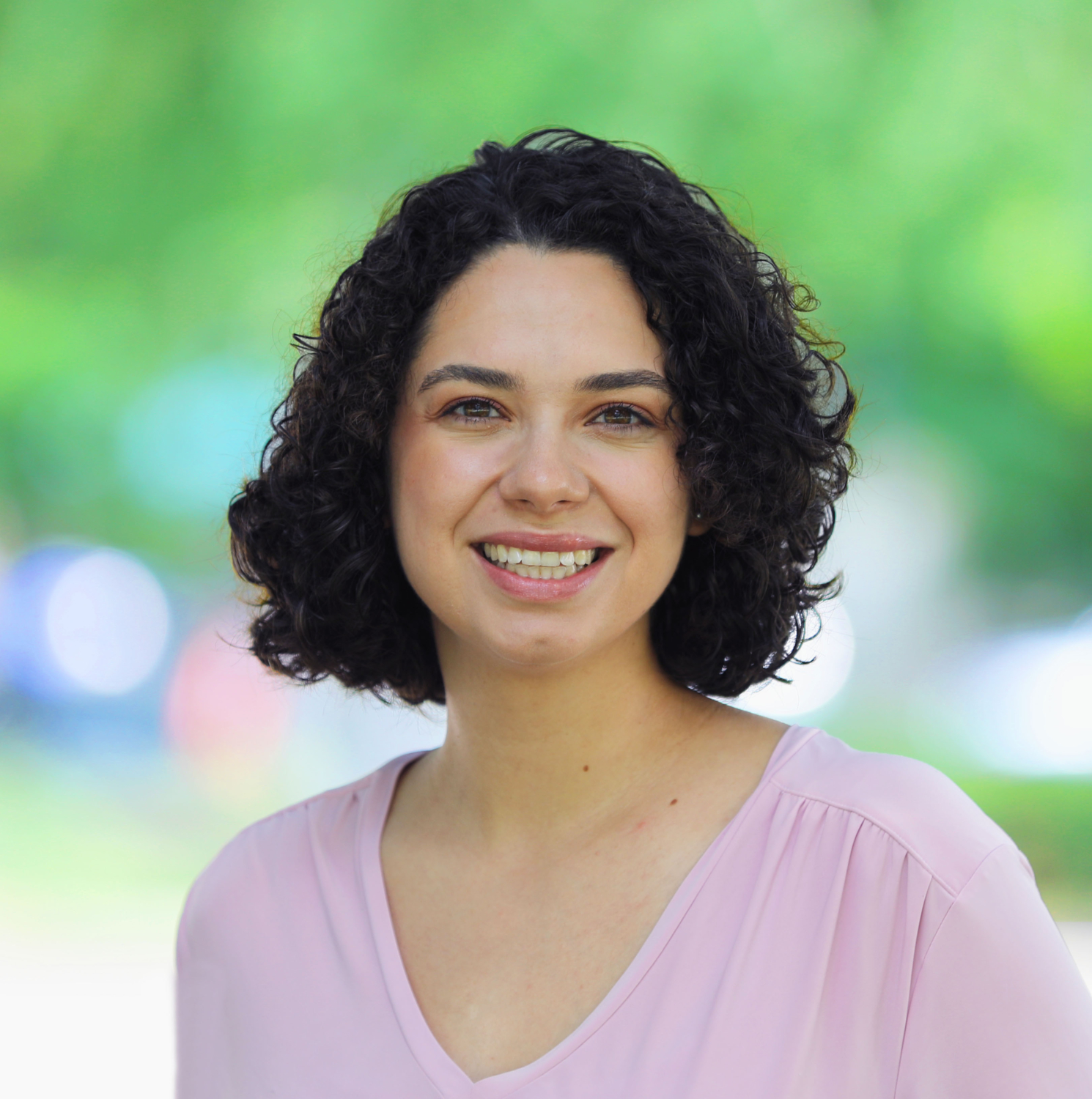Sharhonda Bossier’s Blueprint: Cultivating Multiracial Solidarity in Educational Leadership
“I grew up in Los Angeles. I’m from the Watts section of the city. Like many of our members, I am a first-generation college graduate. I went to school at the University of California at Santa Cruz, so I’m a proud Banana Slug,” recounted Sharhonda Bossier, CEO of Education Leaders of Color (EdLoC).
“I went to college thinking I would become a lawyer. I’d fallen in love with Phylicia Rashad’s character Clair Huxtable on The Cosby Show. She was the first Black woman, professional role model I had. And I really latched onto that example when I went to college.”
Sharhonda entered college as a double major, focusing on political science and pre-law, but while working as a writing tutor in her second year of undergrad, her plans changed.
“That is the job that changed my life,” she said.

Bossier reflected that all the students seeking writing help were friends, and most of them Black or Latino.
“I thought, ‘Something else is happening here. If we are the kids who’ve done everything “right”, what does it mean if we are struggling?’ And I realized that there are systems at play that meant that our schools were under-resourced, and that we were under-prepared.”
After earning a Master’s Degree in Education, Bossier began teaching middle school social studies and English to children of migrant farm workers on California’s Central Coast. She went on to teach U.S. History and Government for 4 more years, before launching a charter school advocacy organization.
During a four-year stint organizing low-income families in New York and Connecticut, she realized the charter school sector wasn’t growing quickly enough to meet demand.
“I had to confront what I thought was possible in terms of systemic change and systems level change,” she said. “That led to some consulting work, and through some of that work, I met some of the leaders who would eventually come to found and launch EdLoC.”
What is EdLoC?

“EdLoC is a membership organization that harnesses the power of the leaders in our network to ensure that young people of color have access to the resources they need to capitalize on opportunity and build wealth,” Sharhonda said.
It was founded by a network of senior leaders in education who felt siloed from other conversations about social and economic mobility and wanted to ensure that their expertise could inform conversations around anti-poverty initiatives, immigration, and criminal justice reform, to name a few.
EdLoC builds on that work by ensuring that both those creating policies and those who implement and feel the effects of policy can work together to improve outcomes.
“A lot of our members are practitioners, and we want them to be thinking about how to shape and influence policy,” she said. “We also want our members who are researchers or policymakers to have an opportunity to engage with people who are going to be charged with the execution and implementation of policy. We believe deeply in the importance of building cross-racial and multiracial solidarity.”
The Importance of Black Leaders in Education
In the realm of education, the presence of Black leaders isn’t just about representation—it’s about reshaping narratives and fostering environments where every child can thrive.
“There are studies that demonstrate that all kids benefit from having Black teachers,” Bossier said, highlighting the transformative impact of diverse role models in breaking down barriers and nurturing a sense of belonging among students of all backgrounds.
Moreover, the importance of Black leadership extends beyond the classroom, as it plays a pivotal role in bridging the gap between schools and communities.
“A lot of parents find schools unwelcoming,” explains Bossier. “Having a familiar face in the school building helps facilitate relationship-building for a lot of parents and helps them to see that the school is serious about supporting their child.”
And Bossier has experienced this personally during her prior work as an educator.
“Some of my students’ parents would ask me for advice on all sorts of things. Having a trusted partner and having those conversations in ways that are developmentally appropriate for your child matters a lot. Those are ways that parents have leaned on me in the past.”
For Bossier, having a diverse educational workforce that reflects the communities they serve is also a critical building block of our society.
“If our public schools are public institutions that are meant to help young people understand their place in this world and prepare them to be productive and participatory citizens, it’s important that the people who are doing that work are reflective of the diversity of our country. Absent that, our democracy is in real trouble. And I mean that sincerely.”
Opportunities to Build on Black History and Mentor Future Leaders

Despite the undeniable contributions of Black leadership in education, numerous opportunities for growth and advancement continue to exist. There remains a need for philanthropic investment in Black-led organizations like EdLoC and professional mentorship for young leaders of color.
EdLoC is embracing those opportunities by creating a diverse community and connections for members. It’s a solution that has impacted Bossier personally.
“Nineteen years ago, when I entered the classroom as a teacher for the first time, there were not a ton of Black women social studies teachers. A lot of the support that I received came from teachers who didn’t look like me, a community of educators deeply invested in my success.”
Bossier encourages leaders from all backgrounds to consider investing in Black leaders and future Black leaders.
“It is really important for people who are not Black to think about investing in and mentoring Black leaders,” emphasized Bossier. “Far too often, I talk to Black leaders that either don’t have a mentor or mentors who have five or 10 professionals they’re working with. So, the weight on Black people who have also made it to a certain point in their career, the demands on our time and the desire to access us are much greater because there are so few of us. “
“Our work is not just about recruiting people to the sector or to high level roles, it’s also about sustaining them once they’re there.”
Through EdLoC’s community, they are advancing the legacy of cross-cultural bridge building left before them.
“I will often remind people that the Civil Rights Coalition was a very diverse coalition, and we [EdLoC] are intentionally diverse by design. That is part of a legacy of Black leadership, understanding the need to win over the hearts and minds of other folks. We are building on that.”




